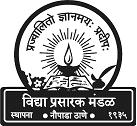|
|
TWO DAY NATIONAL
SEMINAR
ON
BIOETHICS
Introduction
The
life of modern man is becoming difficult, complicated and
disturbed at the material, psychological and spiritual levels. He
has
to face different alternatives, solve complex problems and
compromise with difficult situations. His so-called friends, ‘science’
and ‘technology’, with all their potential for research and
advancement, have given him pleasures and comforts, true. But they
have also made him a slave by giving him all sorts of luxuries on
the
one hand but making him lose his individuality and power of
discrimination on the other. He has, moreover, become immune to
ethical considerations. He does not know what is ‘right’ and ‘wrong’,
rather does not want to know the difference between these two
concepts. With his ‘pragmatic’ outlook, whatever helps him is right,
whatever suits him is good, and whatever he achieves, and achieves
easily, is just. These attitudes influence not only his work and business,
but have even percolated to the supposedly most humane of all
professions – that of healing the sick and ailing. The medical
profession has had its share of problems managing the diseased, but
issues and concerns of ethical conduct in medicine have also now
started assuming importance.
Bio-ethical
Considerations
In such a scenario, bio-ethical considerations have risen to the
forefront in the last few decades.
Topics like Suicide, Euthanasia, Abortion, Surrogacy, Cloning,
Stem Cell research, Organ-transplantation, Industry Sponsored
Research etc. are occupying the consciousness of the modern mind.
Let us take a few examples:
•
Suicide – is it a private act?
Does a man have any right over his death? Plato admitted selfkilling
under extreme distress, poverty and shame. Aristotle
did not agree with Plato and thought of suicide as an act of
cowardice and an offence against the State. Epicures suggested ending
of life if it ceased to be a pleasure. Stoics gave man
permission to live only as long as he wished. The Jewish and
Christians thinkers, St. Augustine and St.Thomas, condemned
self-killing. Manu disapproved of attending the funeral pyre of
a man who ended his life by suicide. How do we explain the
Jaina concept of Samlekhana or Hindu concept of Jivan
Samadhi? The dilemma is that our obligation to meet the needs
and secure the welfare of persons justifies intervention; our
obligation to respect the liberty of others requires noninterference.
Questions
can be similarly asked about some other bioethical issues
of great concern to the modern man:
• Euthanasia:
Should we allow euthanasia to terminal patients
to rid them of their misery and ensure them a dignified exit?
• Abortion: Do we have the right to expel the foetus before it is
viable? When does a foetus become viable? How do we handle
religious prohibition of abortion, which is still seen in many
societies?
• Cloning: Science has achieved the pinnacle of success by
creating a clone but has given rise to a number of ethical
problems in the bargain. How far should science be allowed to
go in animal / human creation?
• Organ transplantation has become extremely useful, almost
like getting a new life, but giving enough scope for overcharging,
smuggling of organs, organ trading and other malpractices.
How do we handle such issues?
• Surrogacy: Can surrogacy be a boon for a childless-couple?
Who is the real mother: the childbearing one or the social one?
What happens if uteruses are given on hire, or surrogacy
becomes one of the professions?
• Clinical trials on human beings and animals: has far can
we
go, and how far is it justified?
•
Bioethical issues in/with Academia and Industry
Connection: Industry sponsored research and clinical
trials; what are the ethical challenges posed by such
sponsorship, and how can they be taken care of so the
opportunities of biomedical advance are not at the expense of ethical
concerns?
• Bioethical issues in Stem Cell research
• Bioethical considerations in IVF (In vitrio fertilization)
Concluding
Remarks
On the one hand science and scientific discoveries are struggling
to
minimize human pain and suffering and trying to get more and more
solace and comfort for the human race. But on the other, they are
contravening the fundamental rights and status of man both at the
personal as well as social level.
Words like ‘good’, ‘bad’, ‘right’, ‘wrong’, ‘useful’, ‘moral’, ‘just’
etc have either lost their significance or have changed their
definitions. The ethical path - whether, as a general pattern or ‘way
of life’, a set of rules of conduct or ‘moral code’, or an inquiry
into
ways of living and rules of conduct - this ethical path is itself
becoming difficult to follow ethically.
It is high time men as rational, social, emotional and spiritual animals
introspect on these problems and try to preserve and promote their
identity with due respect to their empirical instincts, rational status
and ethical identity in the universe. A dialogue between concerned
thinkers and researchers on these issues is very necessary today.
Hence this conference.
|


